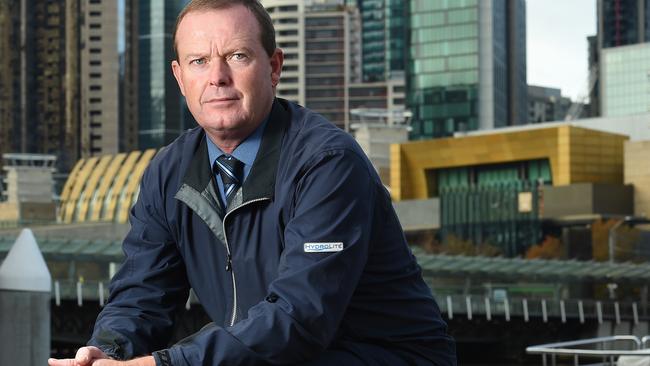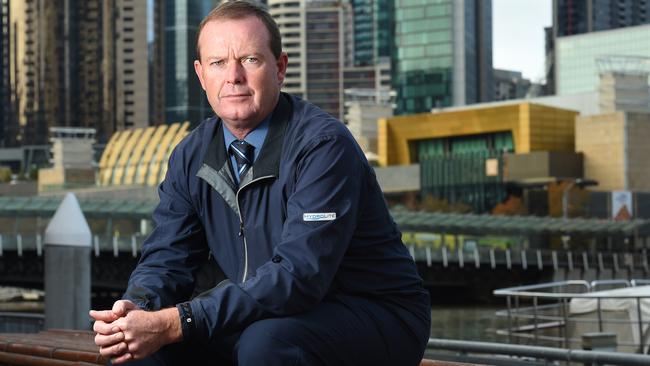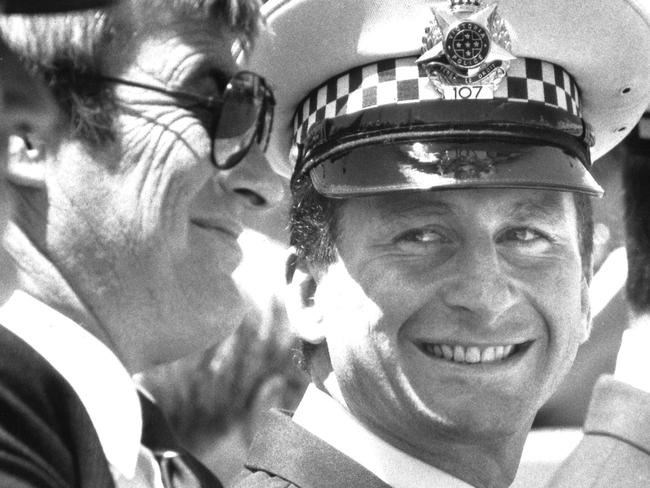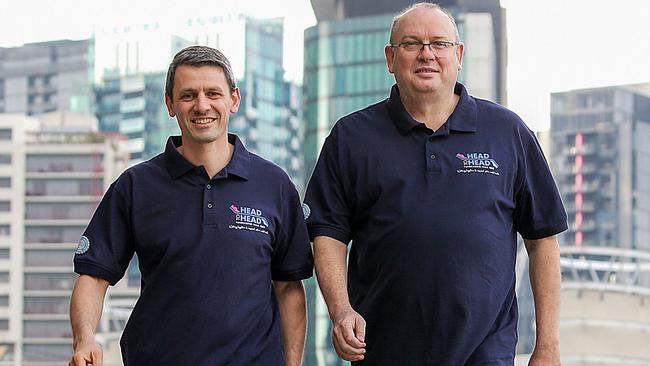Keith Moor: Police officers need help to deal with PTSD
THAT Victoria Police has for decades failed to offer sufficient help to officers suffering mental health problems because of their job is nothing short of scandalous, writes Keith Moor.

Opinion
Don't miss out on the headlines from Opinion. Followed categories will be added to My News.
FORMER officers Mark Wylie and Peter Bellion are just two examples of the thousands of Victoria Police members who have suffered mental health problems because of their job.
Mark Wylie took his own life and Peter Bellion has chronic post-traumatic stress disorder.
That the force has for decades failed to offer sufficient help to such people is nothing short of scandalous.
It is to the credit of Graham Ashton that, in July 2015, on his first day as Victoria Police
DISTURBING FACTS ABOUT OUR COPS’ MENTAL HEALTH
PUSH FOR BETTER SCREENING OF POLICE RECRUITS
Chief Commissioner, he ordered an independent review into what could be done to improve the wellbeing of his 13,000 officers.
That review handed down its finding a year later and Mr Ashton committed to implementing all 39 recommendations in it.
Mr Ashton and Police Association secretary Wayne Gatt also deserve praise for literally walking the talk as far as improving the mental health support available to former members in particular. As the Herald Sun reveals today, they have committed to a 1000km walk to raise $500,000 to professionalise the Retired Peer Support Officer program.

The pair also plans to push for federal government funding so former police members struggling with mental health issues can get access to the same sort of services as retired defence force personnel.
Former military members obviously deserve every bit of help they get — and more — after valiantly serving their country.
But surely ex-police deserve the same as they are regularly exposed to similar trauma to that experienced by soldiers in war zones and the lives of police are just as much on the line as the lives of those in the military.
As Mr Ashton told the Herald Sun, there is a whole government department in Canberra committed to the welfare of veterans, whereas no federal or state government money goes to help former police.
The changes Mr Ashton and Sgt Gatt will lobby for — and the $500,000 they hope to raise during their 23-day walk — are too late to save Mark Wylie, a former armed robbery squad detective sergeant.
He became the latest victim of the Russell St police headquarters bombing when he committed suicide in 2014 at the age of 61.
Det-Sgt Wylie nearly died in 1986 when he was shot through the chest during a gun battle while raiding the Kallista home of bombing suspect Peter Reed.

There were not enough ballistic vests available to give one to each member of the raiding party.
Det-Sgt Wylie was among those not provided with a vest and he was badly hurt when Reed fired off four shots at him from a .45 revolver. Reed was wounded as police returned fire.
While Det-Sgt Wylie recovered from his physical injuries, the mental scars of being shot during the raid never left him and he killed himself 28 years later.
“I have always said Mark was another victim of the Russell St bombing,” his colleague and friend Det-Insp Bernie Rankin later told the Herald Sun.
Although Reed was acquitted of the Russell St bombing charges, he was sentenced to a minimum of 14 years for other offences, including the attempted murder of Det-Sgt Wylie.
Hopefully the efforts of Mr Ashton and Sgt Gatt to improve support for former police will help retired cop Peter Bellion, who attended more than 2000 fatal road accidents during his 26 years with Victoria Police’s major collision investigation unit.
The cumulative effect of witnessing so much carnage resulted in him being medically retired with chronic post-traumatic stress disorder in late 2016. Mr Bellion said he, like many other police officers, took decades to recognise how bad his mental health problems were.
“The first inkling of what I now know as PTSD was in April 2005 when there were two police deaths within two days,” he said.

“The first was Tony Clarke and the second was Rennie Page.”
Senior Constable Clarke pulled over drunk driver Mark Bailey at 1.35am in Launching Place.
Bailey grabbed Sen-Constable Clarke’s gun during a struggle and used it to murder the officer before turning the gun on himself.
“I was preparing the crime scene plan on Tony Clarke when I got the call to attend Rennie Page’s death at Benalla,” Mr Bellion said.
“Rennie had pulled over a driver and was walking back to his police car in the emergency lane when another driver had a micro sleep and drifted over and hit Rennie at about 110kmh.
“From that point on, I started having difficulty sleeping.”
MENTAL HEALTH CRISIS HITTING AMBOS
But Mr Bellion continued working and in the next couple of years he got the call to attend Victoria’s worst hit-run smash, involving six teenagers being
killed when a car ploughed into them near Mildura in 2006, investigated the 2007 Burnley Tunnel incident, which claimed the lives of three people who were burnt to death and just months later he was at the Kerang rail disaster, in which 11 people were killed.
Mr Bellion knows he is stuck with PTSD forever.
There is no cure.
“Most people go through life having highs and lows and operate within say a one metre swell, if you correlate it to surf conditions,” he said.
“But for a chronic PTSD sufferer, it’s basically like riding a five-metre swell most days.”
Details of the walk are at www.headtoheadwalk.org.au.
— Keith Moor is Herald Sun insight editor


